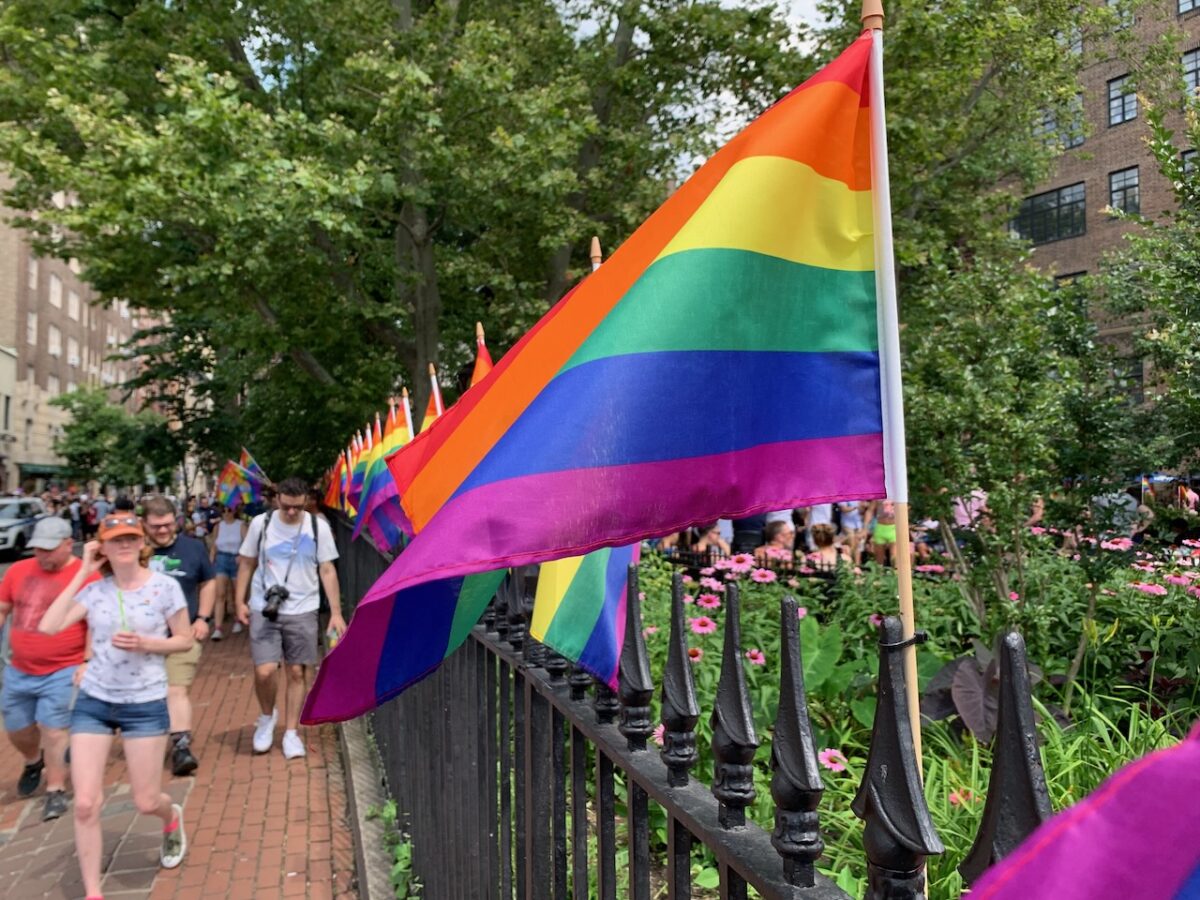Not long ago, someone asked what it takes to be a good LGBTQ ally.
The answer comes down to three words: empathy, education, and advocacy.
Empathy
Empathy helps you understand what we’re feeling and experiencing at a visceral level. With it, you bring emotional intelligence, compassion, and sensitivity to your allyship.
Empathy is about standing in someone else’s shoes, feeling with his or her heart, seeing with his or her eyes. Not only is empathy hard to outsource and automate, but it makes the world a better place.
Daniel H. Pink
Education
Education doesn’t mean earning a degree or walking across a stage to collect a diploma — although commencement ceremonies are an excuse to get dressed up! Think of that gown as a little black dress or a muumuu. Either way, you look fabulous.
To educate yourself, actively watch, listen, and ask questions about LGBTQ issues. Be curious and eager to learn. Don’t worry about becoming an expert.
I remember speaking to a primary care physician about ten years ago and asking him what blood type I am. I didn’t know; it had never been recorded on my chart, and I wondered if he could run a test. He said donating blood was the easiest, fastest, cheapest way to determine my type.
He knew I was gay. But he had no idea that, at the time, gay men couldn’t donate blood. He said he had no idea when I told him about the ban.
I don’t think he was ignorant, and I know he wasn’t hateful or homophobic. As smart as he was about medicine, I wish he had been better educated about this issue. It made me feel like I was living in his blind spot.
A quick aside to my LGBTQ family: We’re also on the hook for education. It’s imperative that we educate our allies — in a way that’s constructive and encouraging — to ensure they’re informed. That’s what I did with my doctor.
And there’s no excuse for us not to educate ourselves. There’s nothing that infuriates me more than an LGBTQ person who doesn’t know about the very issues that affect their lives, livelihoods, and dignity.
Advocacy
As an ally, your most important role is to advocate for LGBTQ people, especially when we can’t advocate for ourselves. Be a champion.
Here are some things allies do that I appreciate:
- Being visible at events like Pride: Just waving a rainbow flag is more meaningful than you can imagine.
- Sharing your pronouns: Something as simple as adding he/him or she/her to your email signature can make a huge difference. It lets others know they can share their pronouns with you without fear, discomfort, or judgment. Consider putting pronouns in your social media profiles and using them when you introduce yourself.
- Correcting others: If you hear someone use outdated or offensive terminology,
set them straightpoint out the error. I had to do this the other day when someone called herself a “f– hag,” believe it or not.1 Unless I have reason to believe otherwise, I assume the speaker doesn’t know their language is offensive and attempt to address the issue respectfully.2 - Calling out homophobia: Don’t let it slide when others make disparaging remarks, perpetuate stereotypes, or make hateful jokes. And don’t let the speaker turn the tables and claim you’re too sensitive or don’t have a sense of humor. The issue is what’s being said — not how you react to it.3
Being an ally can’t just be about nodding when someone says something we agree with — important as that is. It must also be about action. It’s our job to stand up for those who are not at the table when life-altering decisions are made.
Kamala Harris
More About Allyship
There are many resources for LGBTQ allies on the Internet, but none are as comprehensive as this Human Rights Campaign report.
Footnotes
- No, sweetie, that word doesn’t fly. I don’t care that all your friends thought it was funny 15 years ago. ↩︎
- But G-d help the next person who says “sexual preference” within earshot of me. Them’s fighting words, and I will cut a bitch. ↩︎
- Also, “I apologize if you were offended” is not an apology. “I apologize for what I said” is. ↩︎
